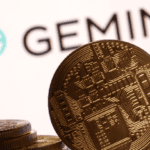Shares of the Swedish fintech, Klarna, rose 14% on their first day, valuing the company at over $17 billion and signalling investors’ revived enthusiasm for new listings.
After years of delays, Klarna has finally gone public — and Wall Street welcomed it with a strong debut. The Stockholm-based buy now, pay later (BNPL) giant saw its stock climb more than 14% on its first day of trading on the New York Stock Exchange, giving the firm a market value above $17 billion.
A Symbol of IPO Market Recovery
Klarna’s listing comes amid a resurgence of IPO activity after several years of drought. Roughly 146 companies have gone public in 2025, according to Renaissance Capital — up 54% from 2024 and more than double the 2022 lows. Other big names waiting in line include StubHub and Gemini, the crypto exchange founded by Cameron and Tyler Winklevoss.
While Klarna’s “pop” was smaller than the 250% surge of Figma or the 168% spike in Circle earlier this year, analysts view the steady gain as a healthier sign. Those blockbuster debuts faded quickly, while Klarna’s more measured climb suggests a more sustainable market reception.
Klarna’s Business Evolution
Founded in 2005, Klarna has grown into one of Europe’s most prominent tech firms. Operating in 26 countries and partnering with global giants such as Walmart, Nike, and JPMorgan Chase, Klarna has steadily expanded its services beyond BNPL loans. It now offers merchant payment processing and recently launched a US debit card, as part of a push to become a broader banking alternative.
- 2024 revenue: $2.8 billion
- 2024 net profit: $21 million (a sharp turnaround from a $244 million loss in 2023)
- BNPL demand: Americans took out more than $75 billion in pay-later loans in 2023.
Despite success, regulators have flagged rising late payments across the BNPL industry. Klarna has acknowledged higher credit provisions but maintains that actual loan losses remain low. Supporters argue Klarna offers a consumer-friendly alternative to credit cards with high interest rates.
A Long Road to Market
Klarna’s IPO journey has been rocky. An earlier attempt in 2022 collapsed due to market volatility, forcing the company to raise private capital at a painful 85% discount to its prior $45 billion valuation. More recently, the Trump administration’s tariff battles delayed its 2025 IPO plans.
Wednesday’s offering marks a vindication for its long-term backers:
- Sequoia Capital invested about $500 million in Klarna; its stake is now worth around $3.4 billion.
- Danish retail magnate Anders Holch Povlsen holds a $1.38 billion stake after selling nearly $300 million worth of shares in the IPO.
Market Significance
Klarna’s successful debut suggests renewed investor appetite for growth companies, particularly in fintech, after years of skepticism. The company now faces the challenge of balancing growth with regulatory scrutiny and competition from rivals like Affirm, Afterpay, and traditional credit card networks.
But for now, its IPO is being read as a vote of confidence in the broader market. As one analyst put it: “If investors are buying Klarna, they’re buying into the future of consumer credit and the future of IPOs.”
Disclosure: This article does not represent investment advice. The content and materials featured on this page are for educational purposes only.
Gold Surpasses Inflation-Adjusted Record High Set in 1980
CPI report shows prices climbing faster than July, What it means for Fed
France’s Government Collapses — What Moved in Markets and What’s Next
The Big Question: Are Crypto ETFs About to Explode?
ETF Boom or Bubble? US Now Has More ETFs Than Stocks as Retail Piles In
Bitcoin ETFs Surge on Trump Election Prospects, Market Braces for Volatility










